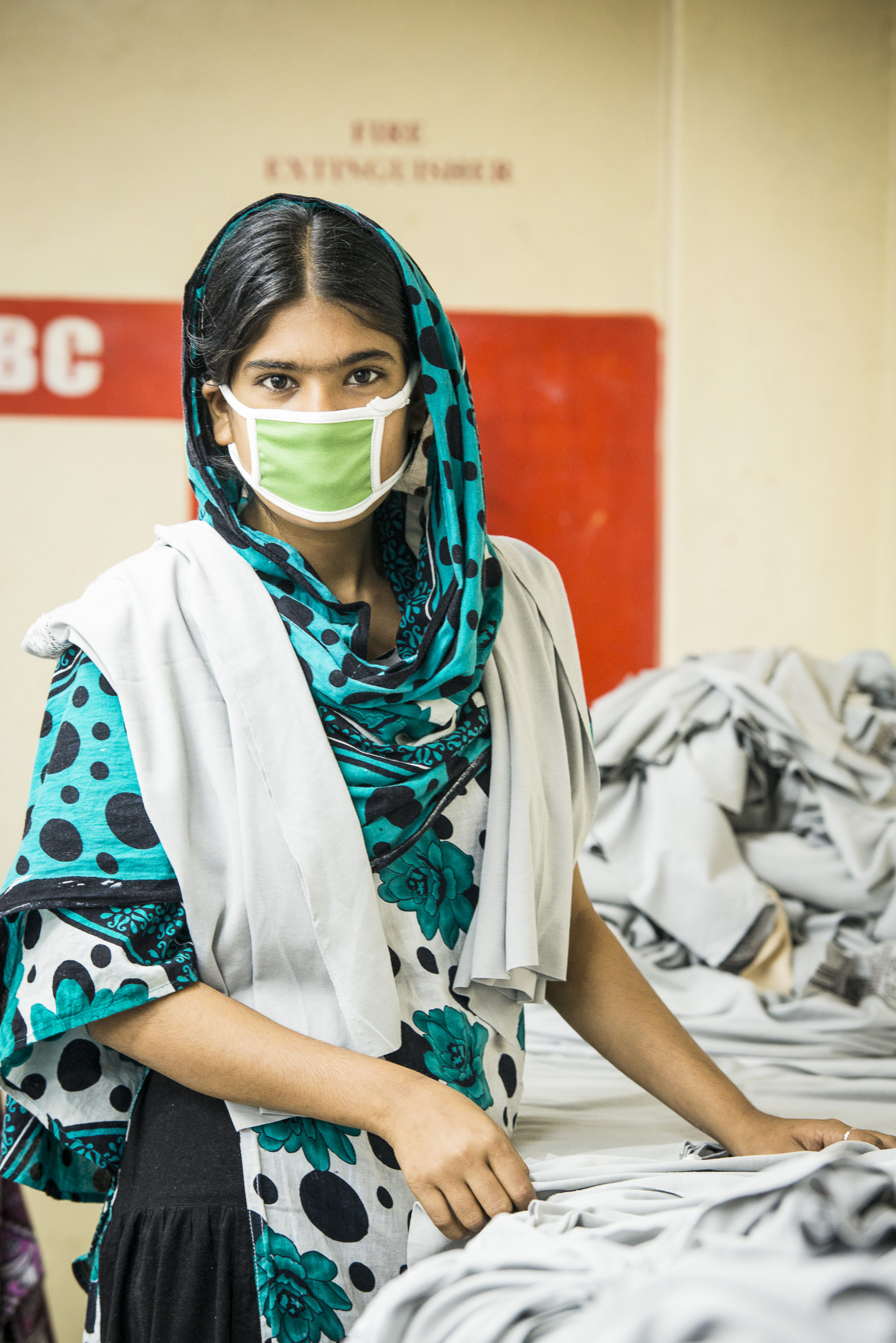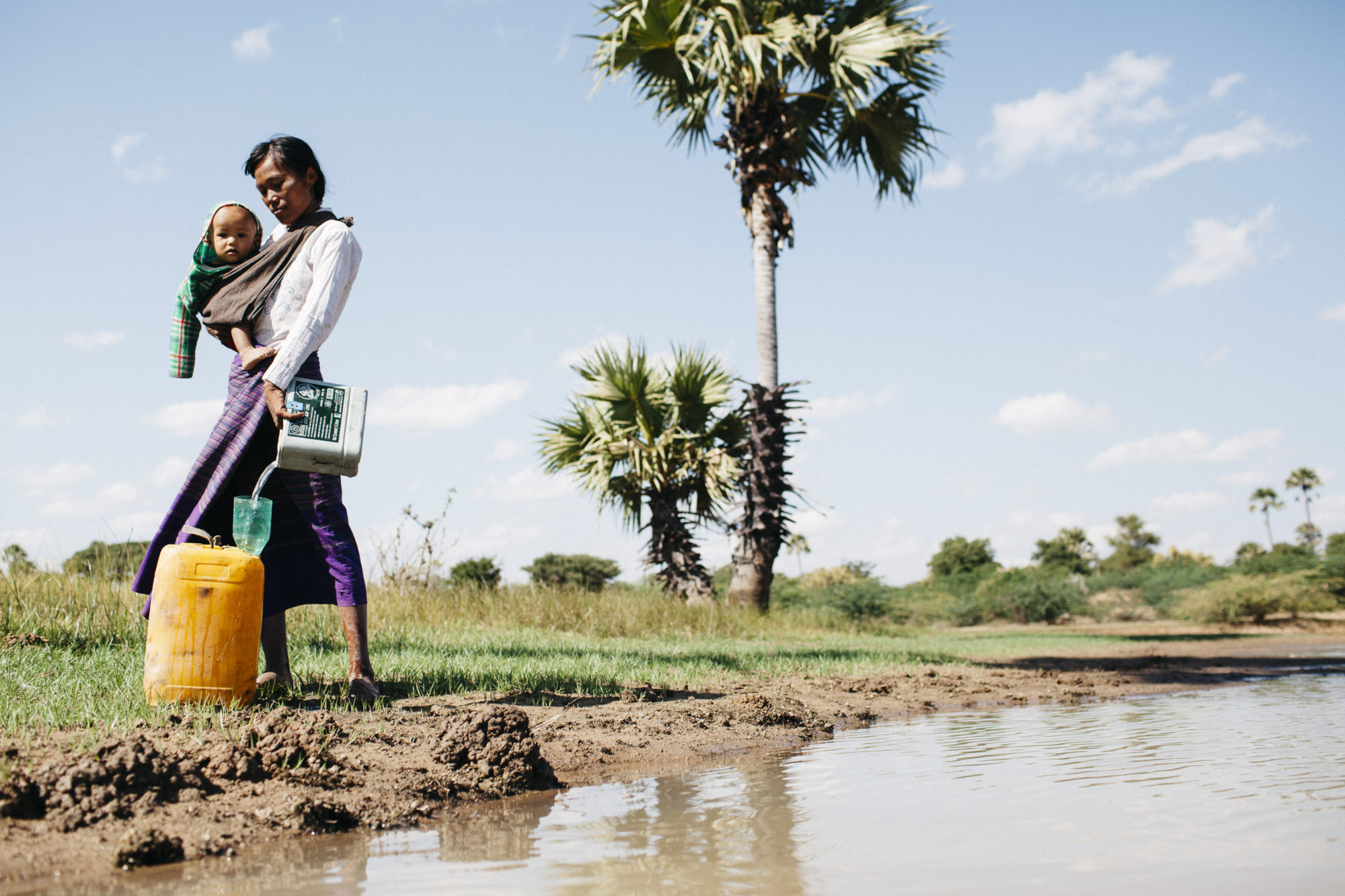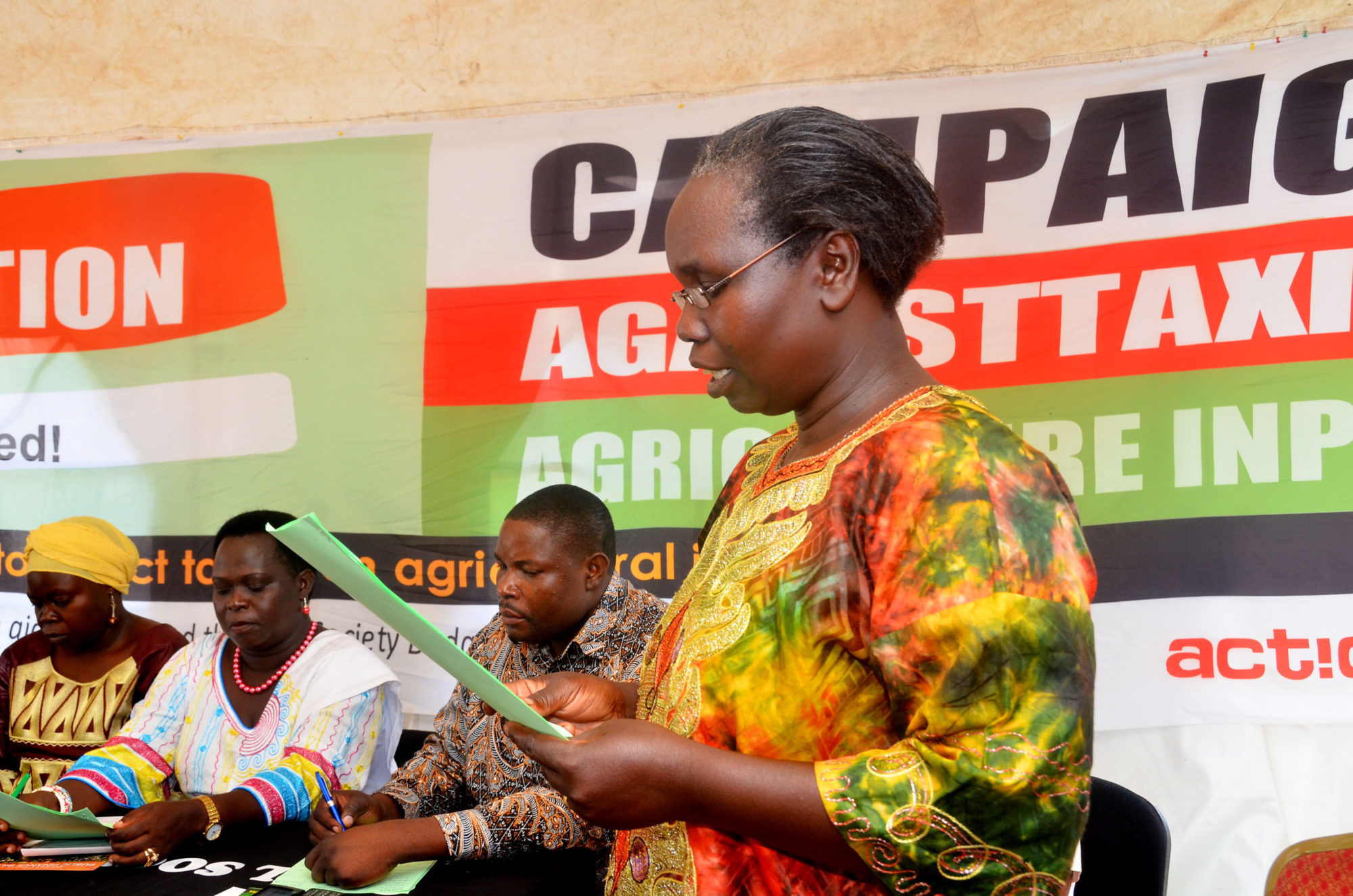Public services are the key to millions of women around the world enjoying their full human rights. They ensure that women and girls have access to vital services like education, healthcare, safe transport, clean water and sanitation.
When public services are privatised, corporations profit but women and girls pay.
1. Gender discrimination in education deepens

Privatisation may threaten Claudette Tuyisenge’s access to education. Rwanda.
In many countries, more boys are enrolled in school than girls – a problem that is exacerbated when education is privatised. Even low fees charged by private schools can mean parents are forced to choose between their daughters’ and sons’ education – and it’s the girls that get squeezed out.
2. Access to critical health services for women are restricted

Access to public healthcare is critical for women. Nigeria.
Private companies often introduce user fees and other charges that result in lower utilisation of reproductive health services by women who can’t afford them. Those women are forced to give birth without professional medical assistance, increasing the risks of maternal and child mortality. Much needed medicines and preventative healthcare become less available as private providers pursue the more profitable treatments rather than those dictated by medical need.
3. Risks for women in the workforce are greater

Privatisation can lead to more exploitative working conditions. Bangladesh.
To increase profit, private companies endeavour to cut costs wherever possible. This can result in lower wages for women workers, fewer workplace rights, more precarious employment, a heavier workload and generally more exploitative working conditions – like forced overtime. When private companies try to cut costs, women are also less likely to be provided with protective clothing and proper equipment, access to toilets and cleaning facilities.
4. Women’s mobility is hindered

Access to public transportation allows Tebah Yrba to earn an income. Liberia.
As women fulfil the multiple roles of caregivers and workers, they often have to get off at multiple destinations and pay multiple fares when travelling to school, childcare, work, the market or shops. Access to safe, affordable public transport is essential for women to ensure they can partake in their many daily activities. When essential services like transportation are run by a for-profit private company, the cost of transportation inevitably goes up. The multiple daily trips a woman makes may simply become too expensive, either restricting mobility or preventing her from affording other essential items, like food.
5. Health and safety risks increase for women and girls collecting water

Daw Myint Htay collecting water with her 11 month old son. Myanmar. Photo by Greg Funnell/Actionaid
When women’s access to water is compromised by privatisation through price hikes or water cut-offs, women and children travel greater distances from home in search of water sources, increasing restrictions on women’s already overburdened schedules and limiting time available for other social, economic and cultural activities. Their safety is put at risk when water restrictions force them to collect water at night-time or from isolated places.
6. Women’s collective bargaining rights are weakened

Christine Adong speaking up for greater workplace rights. Uganda
To limit the bargaining power of workers, private companies may adopt ‘union-busting tactics’ – from misinforming union members to intimidating workers. This can weaken the bargaining power of women in unions, threatening women’s jobs, their rights to decent pay and adequate conditions in the workforce.
Which public services matter the most to you?
Did you know that free trade agreements are one of the big factors leading to increased privatisation of essential public services, undermining women’s ability to access them? Find out what we’re doing to stop this through the Transform Trade for Women campaign.